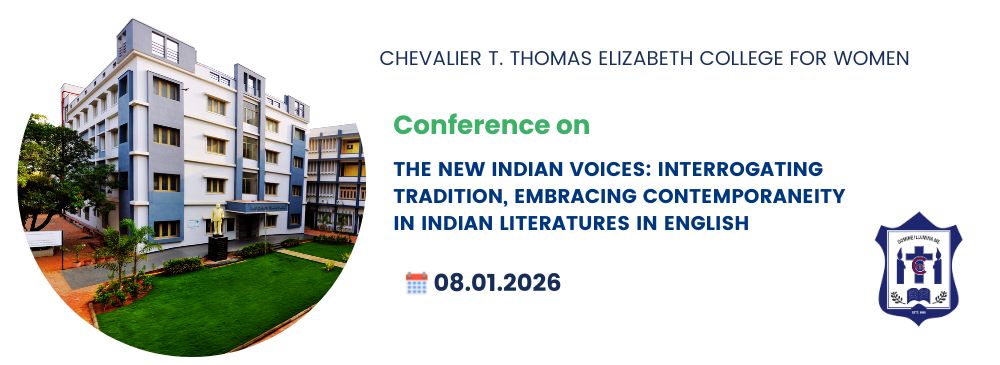
IMPORTANT UPDATE: THE NEW INDIAN VOICES CONFERENCE RESCHEDULED
We would like to inform you that the conference, originally scheduled for December 20, 2025, has been rescheduled to January 8, 2026.
The landscape of Indian literature is undergoing a significant transformation shaped by the ongoing negotiation between tradition and contemporaneity. As Bill Ashcroft notes in On Post-Colonial Futures, postcolonial cultural production today extends beyond the nation-state, deeply influenced by global capitalism and transnational networks. This shift is evident in contemporary Indian writing, where authors such as Salman Rushdie, Arundhati Roy, Amitav Ghosh, Jhumpa Lahiri, and Kiran Desai situate literary expression within global circuits of publication, readership, and diaspora. Translation plays a crucial role in this evolving literary terrain, particularly in a multilingual country like India, where linguistic intersections shape cultural discourse. International recognitions such as the Booker International Prize for Geetanjali Shree’s Tomb of Sand and Banu Mushtaq’s Heart Lamp highlight the growing global engagement with translated Indian texts. In Tamil Nadu, translators including Lakshmi Holmström, Dr. C. T. Indra, and Gita Subramanian have been instrumental in carrying Tamil literary voices into wider literary spaces, enabling the global reception of writers like Bama, Imayam, Salma, Perumal Murugan, and Thamizhachi Thangapandian. Within this dynamic space, emerging Indian writers are actively reinterpreting cultural narratives, language, and memory. The proposed conference seeks to engage with these shifts and critically examine how contemporary Indian voices are redefining selfhood, nation, and narrative in the twenty-first century.
The conference aims to critically explore contemporary Indian literature as it negotiates tradition and modernity, with particular focus on transnational contexts, translation, and emerging voices that are reshaping narratives of identity, culture, and nation in the twenty-first century.
Recommended Reading List (including but not limited to)
Last Date for Submission of Abstract:December 20, 2025
Submission of full-length paper:December 30, 2025
Bank Name: State Bank of India
Beneficiary Name: C.T.T.E. College
Branch: Perambur, Chennai
Account Number: 10313551041
IFSC Code: SBIN0002256
Address: 1/110, Madhavaram High Road, Perambur, Chennai-11
The registration fee can be paid through NEFT (or) G-pay using the bank transfer option.
Honourable Justice . B. Gokuldas
Former Judge , Madras High Court
Chairman, C.T.T.E. Trust
Thiru. L. Palamalai I.A.S. (Retd.)
Managing Trustee & Correspondent
C.T.T.E. Trust
Dr. S. Sridevi
Principal
C.T.T.E. College for Women
Dr. J. Saranya
Assistant Professor of English
Ethraj College for Women (Autonomous), Chennai
Dr. B.V. Sarawathy
Assistant Professor of English
C.T.T.E College for Women
Mrs. Beena Thomas
Head, Post Graduate Department of English
C.T.T.E College for Women, Chennai
Mrs. M. Priyadharshini
Assistant Professor of English
C.T.T.E College for Women, Chennai
Mrs. K. J. Jayalakshmi
Assistant Professor of English
C.T.T.E College for Women, Chennai
Ms. Rachel S
Assistant Professor of English
C.T.T.E College for Women, Chennai
+91 8939765313
Student Coordinators